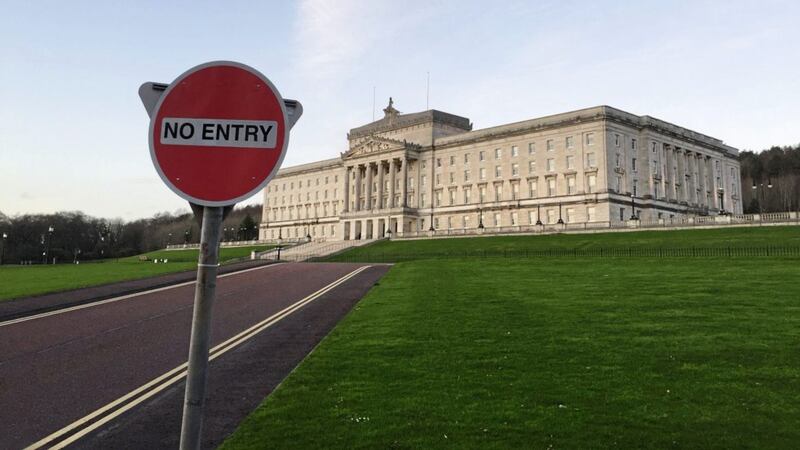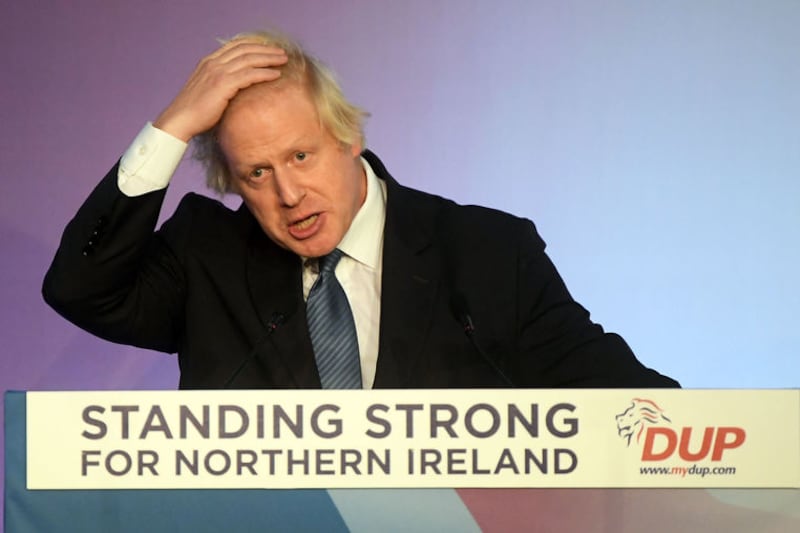The lack of any fanfare and briefing around the British government's Northern Ireland commitments document suggested it was never going to amount to much. If it achieved anything, it was uniting the north's parties in their wholesale rejection of its contents. If it was designed to placate unionists, and in particular the DUP, it failed. If it was meant to provide some kind of reassurance to nationalists, it failed in that regard too.
Ahead of the 13-page document's publication, the word "veto" had been bandied about freely, with both de facto deputy prime minister David Lidington and Sinn Féin indicating that Stormont would given powers to block the imposition of new regulations relating to the backstop.
In the end, the measures proposed were much more wishy-washy. After an extensive preamble that name-checked the "precious union" and the "constitutional integrity of the United Kingdom" along with commitments to uphold the Good Friday Agreement and avoid a hard border, we finally got the meat, albeit on a rather lean cut.
Rather than exercising a veto, Stormont would instead have a "strong" consultative role where it would debate the merits of a particular measure before its recommendations would be considered by Westminster. Ultimately though, in the unlikely scenario where MLAs found consensus and no party deployed the petition of concern, they could be overruled by MPs.
The dispassionate debate that followed the document's release reflected the many theoretical improbables it contained. The fate of the withdrawal agreement remains highly doubtful, while both the EU and the British government have stressed that the backstop should only be implemented as a last resort if nothing can be agreed by the time the implementation period expires. Factor in that it's most unlikely Stormont will be up-and-running any time soon, and you may as well be debating the number of unicorns it would take to fill Parliament Buildings' Great Hall.
The current Brexit purgatory in which we find ourselves trapped looks set to continue long after next Tuesday's vote on the withdrawal agreement and don't expect the attendant acrimony to dissipate any time soon. In a perverse way, yesterday's long-winded proposals summed up Brexit and the present situation rather succinctly – a hare brain plan conceived in England that leaves the north powerless.







